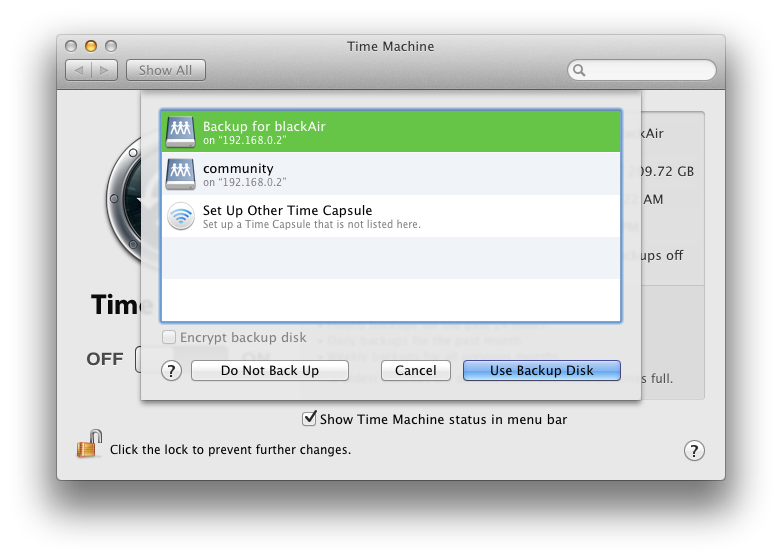

With a laptop, macOS keeps local snapshots that it stores every hour, so if you’re not connected to your network, it won’t back these up, but will do so some time after you’ve rejoined the network (when the next Time Machine backup runs).

Note that you can limit how much storage will be used for backups in this dialog if you don’t, I assume that all available space will be used, which could be a problem. That computer will shortly begin backing up to that remote folder. Click Select Disk, and choose that folder. On the Mac you want to back up, mount the shared folder, then open the Time Machine pane of System Preferences. Check Share as a Time Machine backup destination. Right-click that folder in the Shared Folders list and choose Advanced Options. In the Shared Folders section, click the + button, then choose the folder you want to use for your backups. Go to System Preferences > Sharing, then check File Sharing to activate it. Here’s how.Ĭhoose a folder on your Mac for backups. With macOS High Sierra, this feature is built into the operating system, and you no longer need to install and manage Server to use it.
This is especially useful if you have laptops that you don’t often connect to hard drives to back up Time Machine can do this automatically, in the background, even at night. The Server software had a Time Machine server feature, which allowed you to designate a folder that other Macs could select to store Time Machine backups. Some Mac users have long run Mac OS X Server on a computer in their household to use as a file sharing repository, and to centralized backups of other Macs.


 0 kommentar(er)
0 kommentar(er)
